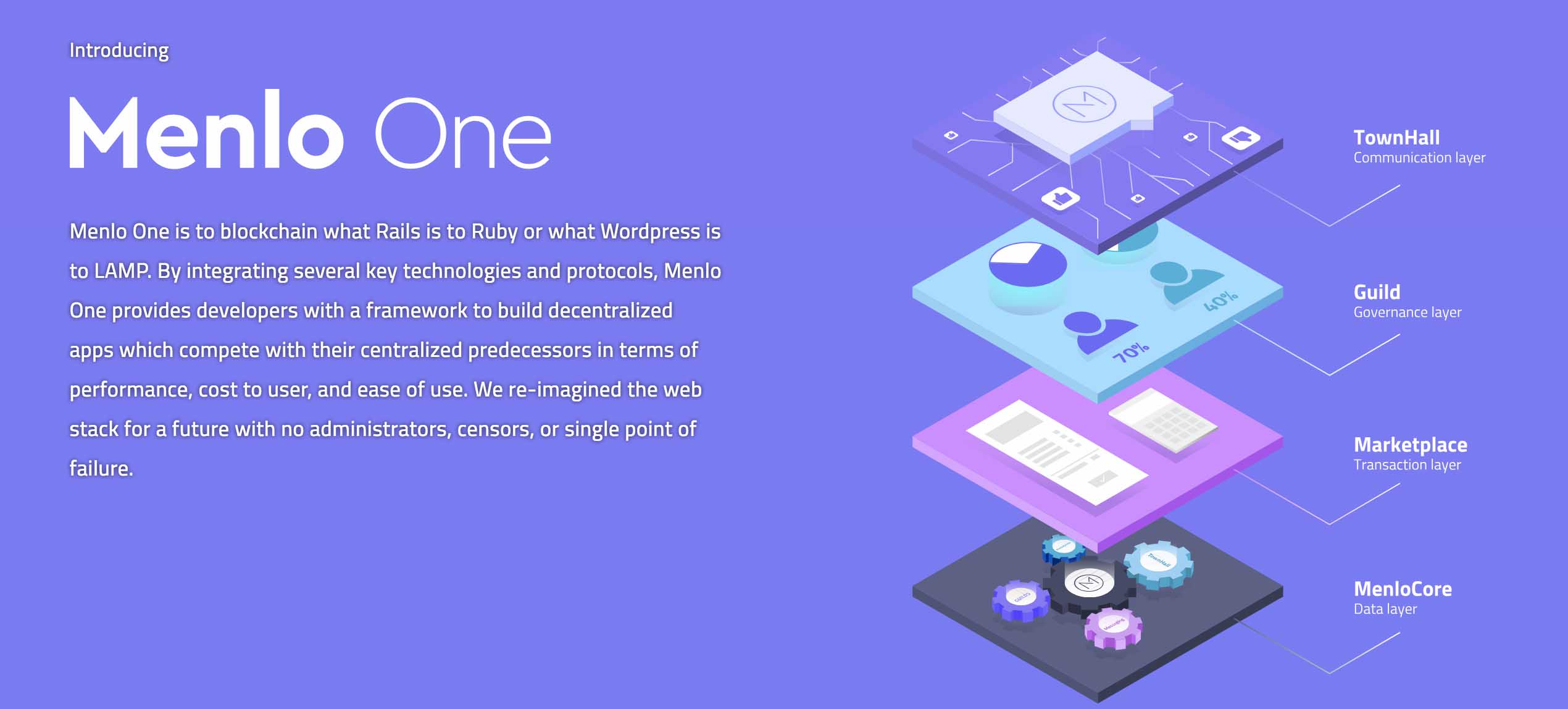Menlo One & Proof of Reputation – The Next Generation of Blockchain
By using Proof-of-Reputation, Menlo One is building a framework to help developers build dApps on the blockchain with the speed of a traditional web app.
Over the history of cryptocurrencies and blockchain technology, there have been several consensus models such as Proof of Work and Proof of Stake to solve the consensus problem of achieving reliability within a network that involves multiple unreliable nodes.
Consensus Algorithms
A consensus algorithm is a process in computer science that is used to achieve agreement on a single data value among distributed processes or systems.
They initially started with the Proof of Work Algorithm (POW), which works by creating a piece of code that is costly and time-consuming to produce but easy for others to verify and is used by Bitcoin as the most popular example.
Then came the Proof of Stake Algorithm (POS) within cryptocurrencies like NEO and DASH which uses a system of distributed consensus, under which the creator of the next block is chosen via various combinations of random selection and its wealth and stake.
Lastly came the Proof of Authority Algorithm (POA) that delivers comparatively fast transactions through a consensus mechanism based on identity as a stake, which is used by approved accounts known as validators.
The aforestated consensus algorithms came with their fair share of problems such as high energy consumption, lack of transparency, slow performance, and security vulnerability to name a few. Each update promised to solve the problems of their predecessors but the time has come to create a new consensus model that utilizes the concept of an individual’s ‘reputation’ to secure the decentralized network.
Introducing Proof of Reputation
Essentially, Proof of Reputation builds upon a codified, self-regulating system through which attributes like good communal behavior and peer-reviewed content allows users to gain reputation and thereby validate the consensus algorithm.
An example of a promising project that is currently implementing a Proof of Reputation (POR) solution is Menlo One, who is building a framework to help developers and users build decentralized applications (dApps) on the blockchain with the speed of a traditional web app. Moreover, Menlo One also extends its Proof of Reputation (POR) functionality to facilitate frameworks of decentralized marketplaces and communities such as an ICO analysis and discovery platform.
By loading the video, you agree to YouTube’s privacy policy.
Learn more
For instance, experts would review projects that of interest by ‘staking’ their reputation in return for paid compensation. Either party (Project Teams and Reviewers) would be actively affiliated with the Menlo Token (MET) system because the former would spend Menlo Tokens, or METs, to get their projects reviewed, while the latter would have to stake their tokens amongst the shared reviews that are assessed by the active community.
The Benefits

Transparent and Accountable
Proof of Reputation (POR) ensures that all the processes would be automated through smart contract verification. Moreover, companies are incentivized to always be accountable by risking losses incurred either financially and reputation-wise if caught cheating.
No Mining, Energy issues
Bitcoin’s Proof-of-Work consensus algorithms utilize over 2.6GW of power through mining – almost as much as the entire country of Ireland. By using a Proof of Reputation (POR) consensus algorithm, there is no mining involved and hence, it is environmentally friendly.
Increased Transaction Speed
Due to the presence of lesser validators under a Proof of Reputation consensus algorithm compared to other models, block sizes and block times are considerably reduced, thereby increasing their potential transaction speeds.
Hence, as blockchain technologies gain more use-cases within our daily lives, Proof of Reputation (POR) models and companies like Menlo One who embrace these ongoing consensus model updates would prove to be crucial in achieving true decentralization of services across various industries.

For more updates on this, follow Menlo One as they continue to implement their Proof of Reputation-backed dApps development framework.
Menlo One’s Telegram
Menlo One’s Medium
Menlo One’s Facebook
Menlo One’s Github
Menlo One’s Twitter

Steven Steel
Steven Steel is an award-winning novelist, blogger, and entrepreneur. He is currently the Content Manager at the cryptocurrency blog, CryptoTicker. He is also in charge of community management for Paranoid Internet, the leading marketing and consulting agency in Germany.
Regular updates on Web3, NFTs, Bitcoin & Price forecasts.
Stay up to date with CryptoTicker.
